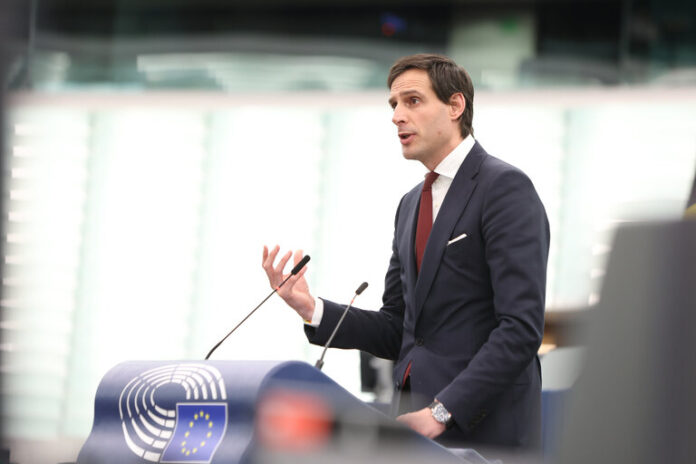The European Commission is trying to appease angry farmers across the continent with its new climate agenda’s targets, slashing references to severe cuts to emissions that has been widely seen as too harsh by farmers.
Farmers took Europe by storm in recent weeks, with protests in Germany, France, Italy and Belgium, among others. Many organisations have been protesting against emissions targets that according to them excessively penalise the sector against non-EU products.
Last Tuesday, the Commission released its climate targets, with an ambition plan to slash emissions by 90% by 2040. However, according to Reuters, the new target doesn’t contain a directive for the agriculture sector to cut 30% of non-CO2 emissions by 2040 from 2015 levels. Reuters wrote that a previous draft had this target.
European Commissioner for Climate Action Wopke Hoekstra spoke in front of the European Parliament to present the new targets and said that “the vast majority of our citizens sees the effects of climate change, does want protection, but is also worried about what that implies for their livelihood.” He called for a “balanced approach” to emission cuts.
His speech prompted far-right MEPs to complain against what they consider unrealistic targets. Far-right parties across the continent have largely supported farmers’ protests. Czech right-wing MEP Alexandr Vondra, from the European Conservatives and Reformists Group said that “the farmers are revolting in Europe and the European Commission is coming with further unrealistic ambitions,” while Syliva Limmer, from German far-right party Alternative for Germany (AfD) added that EU leaders are “stupidly happy” on emission cuts.
MEPs from the Greens and from the Left Group pointed at sacrifices that need to be made also by farmers, with Green MEP Bas Eickhout urging the Commission to not avoid the topic of agriculture.
The proposal by the Commission targets an economy-wide net greenhouse gas cuts of 90% compared to 1990 levels. Under this plan, the EU will mix its energy output, phasing out coal and reduce overall fossil fuel use by 80%, replacing it with renewable and nuclear sources. In the proposal, the Commission also outlined that failing to tackle climate change, foreseeing additional costs of 2.4 trillion euros by 2050 to cope with global warming.
After presenting the draft, the proposal will undergo a political debate. Most likely, it will be the new Commission and the new Parliament that will have to work on the final emission cut target. The task may end up more difficult, as according to polls the EU Parliament is poised to shift to the right in the upcoming June 2024 elections.

